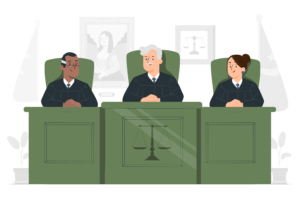In Ontario how often are there Will challenges and how often are they successful?
Will challenges in Ontario are relatively uncommon and difficult to win. While precise statistics are not published, several sources indicate that only a small percentage of estates face formal will challenges, and successful challenges are even rarer.
How Often Are Wills Challenged?
- Will challenges are not routine; most wills go uncontested. The process is complex, costly, and emotionally taxing, so most potential challengers are discouraged by lawyers unless there is strong evidence of wrongdoing or invalidity.
- Common grounds for challenge include lack of testamentary capacity, undue influence, failure to comply with legal formalities, and, more rarely, public policy concerns (such as discriminatory provisions).
How Often Are Will Challenges Successful?
- The success rate for will challenges is low. Ontario courts generally uphold wills that are properly executed and reflect the testator’s intentions.
- Judges do not set aside wills simply because they are perceived as unfair or unexpected; there must be solid legal grounds such as incapacity or undue influence, and the burden of proof is high.
- Many law firms report that, after initial consultations, they advise at least half of prospective clients not to proceed because their cases are unlikely to succeed.
- Success is more likely when there is clear evidence, such as medical records showing incapacity or strong proof of undue influence.
Key Points
- Time Limit: Challenges must generally be brought within two years of discovering grounds for the challenge.
- Cost and Duration: Will challenges can take years to resolve and cost tens of thousands of dollars.
- Practical Reality: The majority of will challenges are settled or abandoned before reaching trial, and only a minority succeed in court.
Will challenges in Ontario are relatively rare and difficult to win. Most are unsuccessful unless there is compelling evidence of incapacity, undue influence, or failure to meet legal formalities.
How Joint Ownership Avoids Probate
Want more information?
Are you interested in a consultation with Peter R. Welsh?
Contact me at Peter@SmartWills.ca
By telephone 416-526-3121
Register for our blog to get valuable tips and up-to-date alerts.
This material is for general information and educational purposes only. Information is based on data gathered from what we believe are reliable sources. It is not guaranteed as to accuracy, does not purport to be complete and is not intended to be used as a primary basis for investment decisions.



